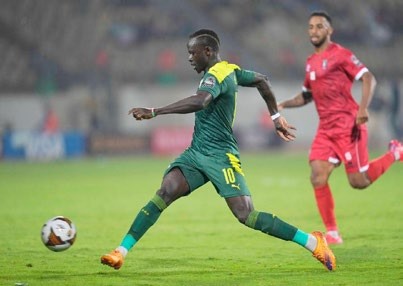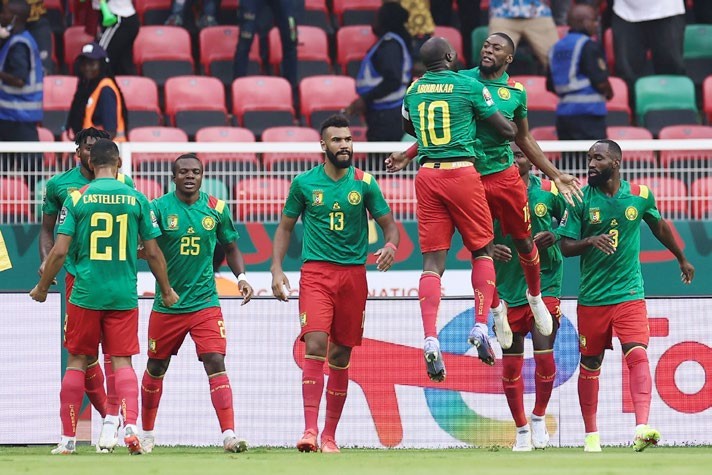January 28, (THEWILL) – Nigeria entered the Africa Cup of Nations in Ivory Coast as one of the pre-tournament favourites, having won the competition three times and boasting a fearsome attacking lineup that included Africa’s best Victor Osimhen. However, their journey to the knockout stage proved underwhelming, relying more on grit and defensive nous rather than attacking flair. Although some of the firepower in the final third was decreased with the injury-enforced absences of Victor Boniface and Sadiq Umar, the team still had the numbers to impress.
In their opening Group D match against Equatorial Guinea, the Super Eagles were held to a disappointing 1-1 draw, struggling to find the back of the net against their opponents. With an array of attacking talents like Napoli’s Osimhen, Atalanta’s Ademola Lookman and Nantes’ Moses Simon at their disposal, Nigeria’s impotency upfront was worrying. Chance after chance was spurned and only a decisive header by Osimhen enabled the Nigerians a share of the spoils after the Equatorial Guineans had pulled ahead.

Nigeria eventually claimed consecutive 1-0 victories over hosts Ivory Coast and bottom team Guinea-Bissau. However, the manner of their progression left much to be desired. It was obvious that the Nigerian team lacked creativity from the midfield going forward. The injury that sidelined midfield enforcer Wilfred Ndidi, in the lead up to the African tournament, has been an unpluggable gap. The Leicester man has been sorely missed.
The balance of tactics was skewed in the team. It emphasised a solid defensive structure, a near absent midfield that broke transition to attack and a front line that seemed incapable of knowing what to do with the ball. Their strategy, which involved maintaining a compact shape in defence while swiftly transitioning into attack when possession was won, petered out because the midfield to facilitate that transition did not feature. The team relied on the pace and skill of their wingers to exploit spaces in the opponent’s defence but quickly lost possession at random. This resulted in instances where they struggled to break down well-organised defences, resulting in a lack of goals.
The only palpable sense of cohesion among the players was evident in their defensive organisation, as players like Calvin Bassey, Ola Aina and William Troost-Ekong put out consistently impressive displays. However, moments of miscommunication and lack of coordination, especially in the final third, led to missed opportunities. This notable lack of output in terms of goals, raises concerns about the team’s ability to convert chances and ultimately go farther than the Round of 16.
The coaching staff may need to reassess attacking options and consider alternative strategies to enhance the team’s scoring ability. The Super Eagles generated numerous scoring opportunities in the group stage but struggled to convert them into goals. The team’s attacking players, especially Osimhen, need to demonstrate more composure and decisiveness in front of goal to capitalise on the chances created. Fortunately, for the first time in a long time, the team’s defensive solidity provides a strong foundation for hope in their upcoming matches. The decision to switch from Francis Uzoho to Stanley Nwabali in goal proved beneficial, bringing stability and confidence to the team’s defensive unit.
Nwabili’s calmness and shot-stopping ability contributed to the team’s strong defensive performance. He will have to continue in that starting XI.
While Nigeria deserves immense credit for defensive solidity, having conceded just once in three games, manager Jose Peseiro has come under fire for negative tactics. There are raging debates in Nigeria over whether Peseiro is the right man to lead a squad brimming with attacking talents. Can he adjust his cautious philosophy to get the best out of Nigeria’s stacked frontline? That question will be put to the test against Cameroon next.
The upcoming Round of 16 match against Cameroon is expected to be a challenging encounter. Cameroon, a strong team with a rich footballing history, adds an extra layer of intensity to the fixture due to their historical rivalry with Nigeria. These two AFCON heavyweights are set to rekindle a historic rivalry that stretches back in time. Cameroon holds the edge with victories in the 1984, 1988, and 2000 finals, the latter marked by a controversial disallowed goal. Rigobert Song, now Cameroon’s coach, was pivotal in the 2000 triumph.
Nigeria, despite an unbeaten group stage, faces a resilient Cameroon known for dramatic comebacks. The match, charged with bitter memories and pride, carries more than a quarter-final spot as these African football giants collide once again. The Super Eagles will need to be well-prepared tactically and mentally to overcome the challenges they will definitely pose. Victory for Nigeria is possible as Cameroon showed their own vulnerabilities in scraping through Group G with just one win in three matches. Cameroon appeared almost disinterested and unmotivated in labouring to one draw (against Guinea), one loss (against Senegal) and one victory (coming from behind against Gambia).

With a place in the quarterfinals on the line, Cameroon’s Karl Toko Ekambi, Georges-Kevin N’Koudou, Andre-Frank Zambo Anguissa, Christopher Wooh and Jean-Charles Castelletto can rise to the occasion. Nigeria will have to inspire themselves to progress.
While Nigeria’s unconvincing group-stage play raises concerns, some teams heightened expectations with eye-catching performances in the groups. Defending champions Senegal validated their pre-tournament tag as favourites, storming through Group B with three impressive victories, scoring goals freely while conceding just one. Their impressive performance earned them a spot in the knockout stage as one of the strongest contenders. Their key player, Sadio Mane, played a significant role in their success.
Equatorial Guinea and Cape Verde also demonstrated strong performances as the most impressive teams in the competition after the group stage. They finished first in their groups, with Equatorial Guinea thoroughly defeating the host country, Ivory Coast, and Cape Verde holding 7-time champions, Egypt, to a 2-2 draw. These teams showed that they can compete with the favourites and should not be underestimated.
Teams like the Atlas Lions of Morocco, Angola, and Mali, who finished as leaders of their groups, cannot be overlooked as potential contenders. However, Morocco were held to a 1-1 draw by DR Congo, which helped the latter qualify for the next round of the tournament. Nevertheless, Morocco’s ability to secure top positions in their groups shows their potential to perform well in the knockout stage in continuation of their impressive showing at the Qatar World Cup.
Angola’s performance was just as commendable. Their performance was marked by high-quality goals and efficient teamwork. This performance indicates that Angola has a good understanding of the game and can deliver high-level performances consistently.
Algeria and Burkina Faso drew 2-2 in their Group D game. Tunisia picked up their first point after a 1-1 draw with Mali in Group E. Despite being one of the top-ranked teams, Algeria failed to finish top of their group, indicating that the ranking of African teams cannot always be trusted as a means of determining their potential success. Tunisia’s performance also was disappointing with the team finishing at the bottom of the group. Gambia and Tanzania suffered a similar fate. It was no surprise to see their coaches Tom Saintfiet (Gambia) and Adel Amrouche (Tanzania) fired soon after
Other teams like Ivory Coast, Cameroon and Egypt also made it to the knockout stage despite facing challenges. Ivory Coast, the host nation, had to scrape through as one of the best third-place finishers and swiftly fired their coach Jean-Louis Gasset. Cameroon reached the knockout phase despite failing to impress during their opening three games. Egypt scraped through despite the injury to Mohamed Salah, while Ghana did not qualify and went home early. Coach Chris Hughton was immediately fired.
Indeed, an intriguing AFCON group stage saw several heavyweights underwhelm massively, while less-fancied teams like Equatorial Guinea, Cape Verde and Mali raised expectations heading into the knockouts. Nigeria and Cameroon, two regional rivals, round out an enthralling round of 16 lineup. With the defending champions Senegal looking dominant and upset potential high, the AFCON knockout stage promises intense drama and unpredictability on the quest to be crowned Africa’s best.
About the Author
Jude Obafemi is a versatile senior Correspondent at THEWILL Newspapers, excelling in sourcing, researching, and delivering sports news stories for both print and digital publications.





